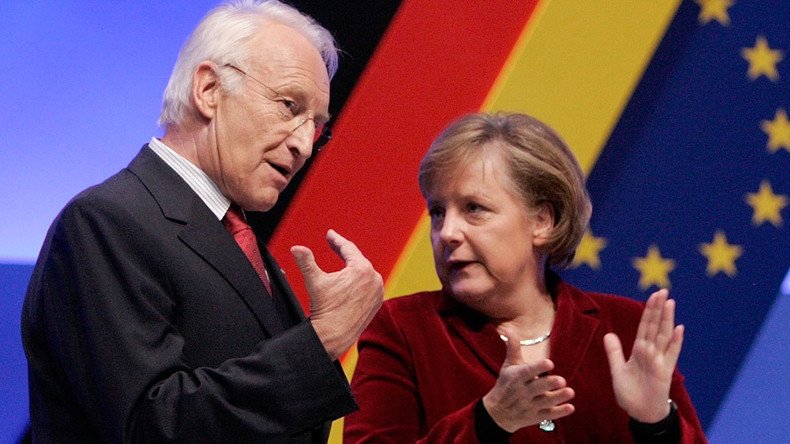Bavaria ex-leader: Govt’s refugee policy bolsters rise of European far-right

Former Premier of Bavaria Edmund Stoiber surprisingly told in an interview current refugee policies promoted by Angela Merkel’s government contribute to the rise of the far-right in Germany, but, above all, across Europe.
“Germany’s policy [on refugees] was crucial for further developments in Europe,” the former chairman of CSU party told Die Welt in an interview last week.
“The current situation in Europe means strengthening of the right-wing parties in the EU,” Stoiber said, carefully avoiding straightforward finger-pointing.
“It would be a narrow-mindedness to look only at AfD [the most popular far-right party in Germany]. We must also look at Le Pen [of the French National Front], Wilders [of Dutch Party for Freedom] or Strache [of Freedom Party of Austria].”
To tackle the refugee crisis effectively, there needs to be a drastic change in current policy, he warned, pointing to introducing of EU’s external borders and establishing transit areas for refugees crossing them.
The ‘open-door policy’ – advanced by Merkel’s government – resulted in “many European countries, for instance, Eastern European ones, but also Italy and France, understanding the [refugee] problem as primarily a German problem,” Stoiber remarked. The refugee crisis is a Europe-wide issue and has to be handled through collaborative effort, he noted.
“The end of the EU would be a historic disaster. The same is true for the end of Schengen.”
Stoiber’s remarks came amid heated debate in Germany on tightening refugee-related rules through a set of measures, otherwise known as ‘Asylpaket II’ (Asylum package 2).
The package includes curbing welfare benefits for refugees, but also rejecting asylum applications for refugees failing to meet prospects for their stay in Germany.
German Catholic Church calls for reducing refugee inflow https://t.co/5xlHUqDlRwpic.twitter.com/biBIoPY6YT
— RT (@RT_com) February 6, 2016
Nevertheless, Merkel had recently reaffirmed the public she is determined to carry on with her ‘we-can-manage-this’ approach towards refugee crisis.
“My damn duty and obligation consists of finding a collective way for Europe [to address the crisis],” Merkel told anchor Anne Will in her Sunday night talk show on NDR TV channel. He went on by saying her solution to the crisis would be improving conditions in refugee camps outside Syria's borders and putting the West's diplomatic effort to bring peace to the war-torn country.
"I am firmly convinced that the path I have started down is the right one," she added. "Belief can move mountains."
According to the latest poll by NDR broadcaster, the majority of Germans – 52 percent – believe the refugee crisis could only be resolved by setting the upper limits for incoming migrants. Some 38 percent were confident Germany can take up to 200,000 refugees a year. Only 3 percent answered ‘Yes’ to a question about taking 1 million – roughly the last year’s figure for the refugees who arrived in Germany.













